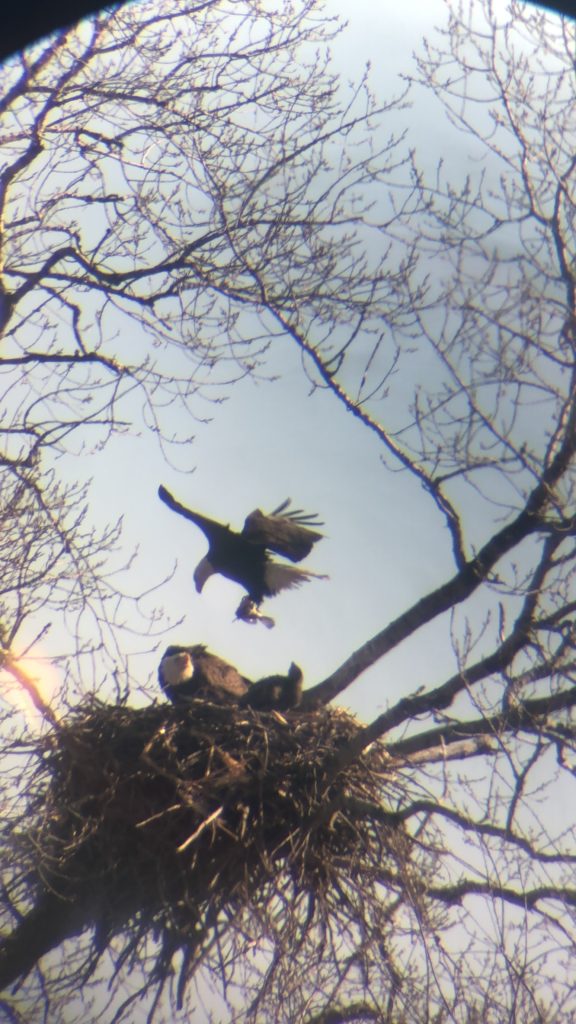Since Wisconsin issued a Safer at Home order on March 25, I have been leaving my home exactly once a week. Every Tuesday morning, I drive to a small town outside of Madison to spend an hour monitoring a nest of bald eagles. I’ve been volunteering for Bald Eagle Nest Watch since the beginning of the year, and three weeks ago I got my first look at two newly hatched eaglets. Over the past few weeks, I’ve found that my time at the eagle nest is a wonderful relief from the stress of the pandemic and the confinement to my home.

I’m not the only person escaping to natural spaces for relief during the widespread lockdowns in response to COVID-19. Parks have been filled with people taking daily walks and enjoying fresh air when there are few places indoors they can safely go. Besides encouraging many people to visit local parks and forests, the COVID-19 pandemic has revealed many complexities of humanity’s relationship with the environment. The severe drop in human activities has resulted in decreased air pollution, as well as fascinating changes in wildlife behavior. However, the pandemic is also an important reminder that the environmental impact of human activity has drastic consequences for global risk of infectious disease. This Earth Day, it’s the perfect time to pause and examine how the COVID-19 pandemic and the natural world are influencing each other for better and for worse.
Continue reading “Earth Day 2020: Celebrating Nature During A Pandemic”